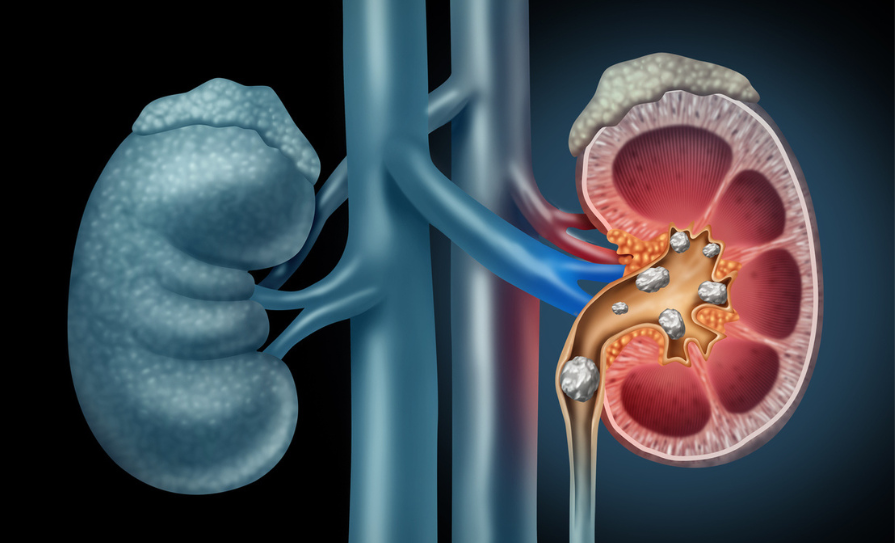How Kidney Stones Form
Let’s take a simplified approach to a complex process. First, just a little bit of biology. You have two kidneys located on each side of your lower back, just above your waistline. Their main job is to filter your blood of toxins and turn that waste into urine. There are tiny tubes, called nephrons, running through your kidneys that facilitate this process. Once formed, the urine is then passed from the kidneys, through tubes called ureters, to your bladder where it is then collected. Once enough urine is collected, your bladder then empties through another tube called a urethra to its final destination. The kidneys, nephrons, ureters and urethra taken together are referred to as your urinary tract. Still with me?
Good! There are a bunch of small, but very important, tubes involved in this process. Your two kidneys together make three liters, a little more than three quarts, of urine every 24 hours. Over 200 liters of fluid are filtered to make that much urine. That urine, as I mentioned earlier, has various waste dissolved in it. The urine becomes more concentrated as it moves through your urinary tract. When the urine gets too concentrated, as in not enough fluid, these wastes can form tiny crystals which are now floating around in those small diameter tubes I mentioned earlier. Starting to see the problem?
Back to the crystals. Other elements in the urine can join these crystals, stick to them and form bigger crystals that will continue to enlarge unless passed out of your urinary tract with the urine. As they continue to grow these crystals become larger, eventually becoming stones. If they don’t go with the flow, they can either adhere to the passageways in your urinary tract or get too large to pass. Stones that don’t move can cause an obstruction in your urinary tract, causing a backup of urine which then causes pain.
If the stone is not attached and is moveable, it can still be quite painful as it passes through your urinary tract and finds its way out. If this is you, your physician has probably instructed you not only on how to manage your pain, but quite possibly, to drink lots and lots of water. Lots of water in means lots of urine out and hopefully this can flush your stone out of your urinary tract. If this approach does not work your physician will probably need to perform a medical procedure to remove your stone.
Learn more at www.ceromulti.com
Key Points:
Waste filtered by your kidneys becomes crystals, crystals become stones
Stones enlarge and cause pain; not good


